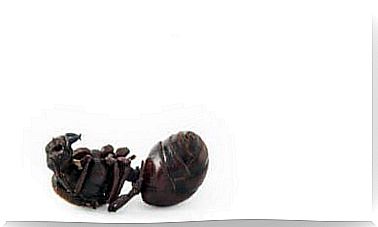Are Crossbred Dogs Healthier: Myth Or Reality?

Inbreeding practiced by some irresponsible breeders may be the reason why purebred dogs are more prone to disease. On the other hand, it’s true that crosses can have a more uncertain character, but is it really that crossbred dogs are healthier?
When choosing your new pet, you may have considered purchasing a purebred animal or adopting a crossbreed (non-breeding – SDR). The information you find may be misleading and sometimes based on prejudice without any scientific basis, such as that of dogs bred are usually more intelligent or that mongrel dogs are healthier.
Why it is said that crossbred dogs are healthier
One of the most notorious problems surrounding purebred animal breeding is inbreeding. As with any business, breeders sometimes choose to maximize the benefits, even risking putting the offspring’s genetic inheritance at risk and transmitting congenital or hereditary diseases.
A puppy born with these problems can be exposed to a number of complications of varying severity:
- One of the most common and serious hereditary diseases is called cerebellar ataxia. About 40% of American and European pitbulls and staffordshire terriers are affected by this condition. It is a degenerative disease of the nervous system that affects the animal’s mobility and considerably reduces its life expectancy. It is preventable through reliable DNA testing.
- The search for certain physical characteristics, traditionally associated with the “beauty” of the animal, has led to a colossal loss of other mental and anatomical abilities, as well as other types of problems. One of the best known cases is that of the Pug, whose extremely short snout (developed thanks to inbreeding practices) causes respiratory problems in the animal for life. Another example is that of the German Shepherd, a dog that has lost its balance in personality and is prone to hip dysplasia, among other problems.
- Another factor is the rate of cancer incidence in dogs. As breeding of purebred animals became so popular, cancer continued to grow. The golden retriever, for example, is prone to suffer from various types of lymphoma, and the number of cancer-related deaths is such that the United States has invested 35 million dollars in studying the disease.

He will also screen potential parents for possible genetic defects and, if they find out about their existence, they will not allow them to have offspring.
Is it really better to buy a crossbred dog?
Despite all this, there are many detractors of crossbred dogs. Many argue that it is difficult to predict the size and personality of these specimens, and that it is not easy to know whether they will suffer from disease in the future.
This information may be important for a puppy adopter who believes he will bring home a dog that will eventually be of medium size but will end up with a dog the size of a mastiff.
When it comes to the behavior of dogs, care must also be taken with which animal you choose : families can often end up with very fickle and unpredictable dogs, which may be more compatible with owners who live in the countryside.

Another problem we may have with crossbred animals is that many of them have been abandoned, which may have affected their personality and turned them into anxious or nervous dogs.
Some simply argue that a person who invests so much money in a purebred animal will have the means and the interest to provide proper care and that someone who abandons a crossbred dog is an owner who is generally less prepared or unprepared. responsible.
Whether crossbred dogs are healthier or not is irrelevant for practical purposes. The truth is that owning an animal always has its pros and cons, and you must be prepared to face both the good and the bad.









